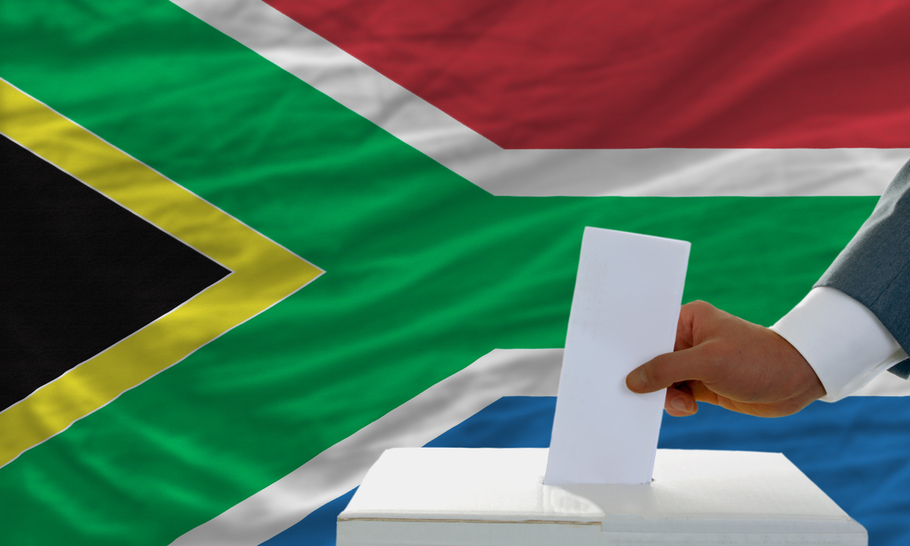South Africa’s fragile democracy

South Africa’s parliamentary elections on 8th May were the sixth since democracy was introduced in 1994. They were held in an atmosphere of unparalleled national crisis almost entirely self-inflicted by the ruling African National Congress. Unemployment, 3.7 million when the ANC took over, is nearly ten million now. Poverty and inequality have grown exponentially, while the governing elite loots and steals all it can. The country is now in its fifth consecutive year of falling real incomes, the chronic power cuts – suspended artificially for the election – are expected to last at least another five years, two out of the three rating agencies have consigned South Africa to junk status, the crime rate is horrendous – 57 murders a day – and the police corrupt and wholly ineffectual. Corruption is indeed omnipresent, and most national institutions have been undermined by it. Economic growth has slowed to 1% a year or less.
Under the circumstances, it was remarkable that the Economist counselled voters to vote ANC again, largely because it places great faith in the would-be reforming new president, Cyril Ramaphosa. The voters, largely impelled by racial solidarity, followed this lead, though the ANC vote slipped badly by 4.6% and turnout fell 9% to only 65%. Whether Ramaphosa can or will really change the country’s direction is unclear. He was, after all, Jacob Zuma’s deputy president for many years, and said not a word about the orgy of looting going on all around him. Zuma’s faction remains strong within the ANC and will fight like fury for its right to continue to steal. Two of the most corrupt men in the government are David Mabuza, the deputy-president, and Ace Magashule, the ANC secretary-general. Moreover, Ramaphosa has thus far backed down before of every pressure group he has confronted. A good half of the electorate already regard him as weak. The least one can say is that if Ramaphosa is to fulfil the reforming hopes placed in him, he will have to reveal a backbone of steel of which there has been no sign to date.
Given the parlous state of the country, the ANC’s losses could well have been a lot bigger. Even the ANC election organiser, Fikile Mbablula, admitted that without Ramaphosa’s coat-tails the party could have lost another 15-20% of the vote, while former President Kgalema Motlanthe agreed that this was bound to be “the ANC’s last chance”. Focus groups revealed a state of depression and demoralisation among all racial groups and, in some cases, a spontaneous wish by some Africans for the return of white rule.
Theoretically, the election should have been tailor-made for the main opposition, the liberal Democratic Alliance, but in fact they broke their 25 year winning streak and instead went backwards by 1.5%, losing eight seats and hundreds of thousands of votes. The fact that this disaster occurred on the watch of the party’s first black leader, Mmusi Maimane, has placed the party in a quandary. Maimane’s popularity has steadily declined, he is widely seen as indecisive and he has failed to pull over the extra black voters that he hoped for. Moreover, under his leadership the party has ignored the grievances of the Afrikaner voters who were previously its strong supporters, and this unforced error caused hundreds of thousand of them to quit the DA for the conservative Freedom Front +.
The main gainers of the election were the radical populist Economic Freedom Fighters, a ferociously anti-white and anti-Asian grouping – its leader, Julius Malema, promises that he “will not slaughter the whites – at least not yet”. The EEF advocates the nationalisation of all land, industry and the banks, the doubling of all social grants and pensions and as many other unfundable promises that it can dream up. Its leaders have been involved in various corrupt scams, but none of this seems to dull the passionate support of many younger black people (especially young men) for the party. The EFF gained 18 seats and now has nearly 11% of the vote. This, indeed, is the danger: if the ANC continues to fail as badly as it has to date, there is a clear possibility that Malema and the EFF will be the main beneficiaries, in which case the country will be caught in a destructive and downward populist spiral. The sight of Ramaphosa appealing to Malema to return to the ANC does little to allay white fears. For the moment the country is waiting with bated breath for Ramaphosa’s announcement of his new cabinet. If he kicks out all the notably corrupt, there will be major ructions within the ANC, but if he fails to do so, hope in the reforming potential of his presidency will collapse.




